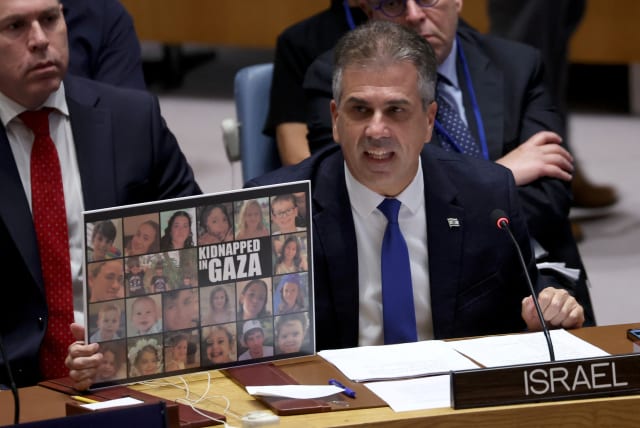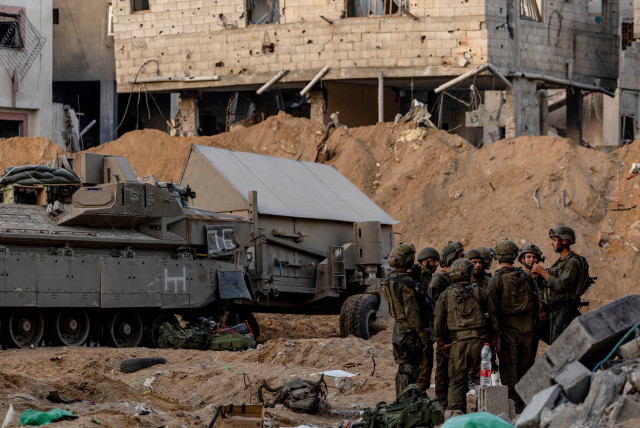Israel FM: Israel has a diplomatic clock of only 2-3 weeks for Gaza war

“From a diplomatic point of view, we recognize that pressure has begun to bear on Israel. The pressure is not very high [now], but it is increasing,” Cohen said.
Israel has a diplomatic clock of only two to three weeks to conduct its war to oust Hamas from Gaza, Foreign Minister Eli Cohen told reporters in Jerusalem on Monday as international calls for a ceasefire have grown.
“From a diplomatic point of view, we recognize that pressure has begun to bear on Israel. The pressure is not very high [now], but it is increasing,” Cohen said.
When asked how long a diplomatic clock he believed Israel had, he answered “two to three weeks.” Cohen stated, "From our point of view there is no clock — we won't stop the military campaign until we've eliminated Hamas and returned the hostages."
Cohen noted that some eight countries had taken steps against Israel as a result of the war, including in some cases pulling their ambassadors and in others cutting ties altogether.
Those countries included: Bolivia, Chad, Chile, Columbia, Honduras, Jordan, South Africa, and Turkey.
“We are working to sway two to three countries to return their ambassadors in the coming days or weeks,” Cohen said, but he did not specify which ones.
“Pressure on other countries to withdraw their ambassador to sever relations will increase particularly since the military campaign is not in its final stages,” Cohen stated.
There are some 13 to 14 swing countries, which Israel fears, could also take significant diplomatic steps against the Jewish state, he explained.
“We are in close contact with those countries in order to prevent damage to our relations with them,” he said.
Military campaign 'legitimate'
The Foreign Ministry has worked since the start of the war, Cohen explained, to make Israel’s case to the global community that its military campaign in Gaza is a legitimate response to the October 7 attack. On that day, Hamas infiltrated southern Israel, killing over 1,200 people and seizing more than 239 people captive.
“The captives are one of the main issues that give Israel legitimacy to continue fighting” and to rebuff international calls for a ceasefire, he said.
“The world accepts that Israel will not stop [its military campaign in Gaza] until all the captives are released,” he added.
The seizure of such a high number of hostages from one event has never occurred in Israel and is highly unusual on the international stage, he said.
Cohen said he brings family members of the captives to every meeting he holds with foreign ministers and representatives of international institutions both in Israel and abroad.
He explained that he brought them to the European Union in Brussels and to the United Nations in New York. Representatives from the hostages will also accompany him to Geneva on Tuesday, where he plans to meet with the head of the International Committee of the Red Cross to press the organization to meet with the hostages.
Jerusalem Post Store
`; document.getElementById("linkPremium").innerHTML = cont; var divWithLink = document.getElementById("premium-link"); if (divWithLink !== null && divWithLink !== 'undefined') { divWithLink.style.border = "solid 1px #cb0f3e"; divWithLink.style.textAlign = "center"; divWithLink.style.marginBottom = "15px"; divWithLink.style.marginTop = "15px"; divWithLink.style.width = "100%"; divWithLink.style.backgroundColor = "#122952"; divWithLink.style.color = "#ffffff"; divWithLink.style.lineHeight = "1.5"; } } (function (v, i) { });

